Finding the Courage to Forge a New Career Path
It’s a fascinating time to be involved with business. So many companies are struggling to understand what about their histories made them successful and what about the future will demand that they change.
Our leadership, for example, is quite different today than it was when the barons of business called the shots. Big men (not women) with big reputations ruled big companies. Such big men seem to be much rarer these days. Perhaps that’s because companies are far more complex, women have stepped into the arena, competition is much more intense, and workers have far different ideas than their predecessors. A command and control hierarchy was the order of the day back then and everyone knew their place on the totem pole. Patience and consistent good work eventually led to promotion and greater authority.
Not so today. People move freely from company to company sharpening skills, seeking bigger paychecks and negotiating enhanced benefit packages. Leaders are supposed to be more democratic and sensitive than those of old. It’s harder to measure performance because that, too, has become much more complicated than it was. Used to be, you did things like run a machine, design something, keep the books, or run a department, which meant handing out job assignments on a regular basis. If you designed something, your chances of winning a patent were pretty good. If you kept the books, you had ledgers and pencils and a filing system you could put your hands on.
Today, even if you run a machine, chances are you couldn’t fix it yourself. It’s probably loaded with electronic chips. If you design something, chances are someone somewhere else has a similar idea, so your challenge is to make it good and fast. If you keep the books, chances are you’re dealing with a lot more numbers in an automated system with files that exist only electronically. And if you run a department, you know it’s a lot harder to find and keep good workers than it used to be.
The loyalty between worker and company is something that has changed dramatically, too. Hardly anyone works where Dad used to; in fact, some of those companies are gone and in others, working with relatives is discouraged. People change jobs more often, and companies downsize—something that was unthinkable back then.
Still, we recognize that some old-fashioned things are the reasons why companies succeeded in the past. We long for the good old days when people knew each other and trusted their bosses. We wish things could be simpler, like they were before. We want someone (the president, usually) to give us the answers and show us how to apply them to our day-to-day job challenges.
Today there are far more questions than answers. Worse, there are several answers to each question, so we must constantly wonder which answer is best. More maddening, still, is the fact that one answer appears to work in some instances, while another answer is better at other times.
We get a little crazy.
Our challenge in business today is to pry our fingers off of yesterday’s answers and seek today’s. We need to turn our feet toward the promise of the future instead of wanting to rediscover the magic of the past.
There are things we can carry over from the past to help our work today. One is listening to our customers. I suspect we’ve forgotten how to do this in our efforts to devise ever more sophisticated “listening posts.” I fear we’ve gotten caught up in the process and forgotten the purpose.
Another thing we can remember is how we used to serve our customers. Used to be, we smiled at our customers and asked if there was anything more we could do for them. Used to be, we took pride in how we presented their purchases to them. Used to be, we took pride in how we presented ourselves to them. Now our service is far too often careless; our minds on things other than making our customers happy.
But in looking back for happier, easier times, we are missing the amazing possibility of today and we’re failing to create the “good times” of tomorrow.
What’s the answer, many want to know. Should we simplify? Or should we create more sensitive monitoring systems to give us better information? Should we train people to be more attentive to our customers? Or should we remove as many people from contact with the customer as possible? Should we give people more tools to make them more efficient? Or should we cut back on the tools and focus on stabilizing the process? What are we missing?
Yesterday is gone. Tomorrow is not yet here. We are disconcerted because we hold bits of both and don’t know yet how to join them together. We would be well served to use today to experiment with the pieces. To watch for reactions to our experiments and do more of what works; less of what doesn’t. This seems like a simplistic answer, but the numbers of people who claim they don’t have time to observe continually amazes me. Or to think. Or to change anything.
To keep going fast along yesterday’s pathway is a wrong-headed choice. To go with pace, fortifying our work with thoughtfulness and learning is a much wiser course of action. We may find that yesterday’s path, with a little alteration, makes good sense. But we can’t be afraid to change the path if our learning or our tools or our customers tell us it doesn’t work anymore.
Categories: General Advice